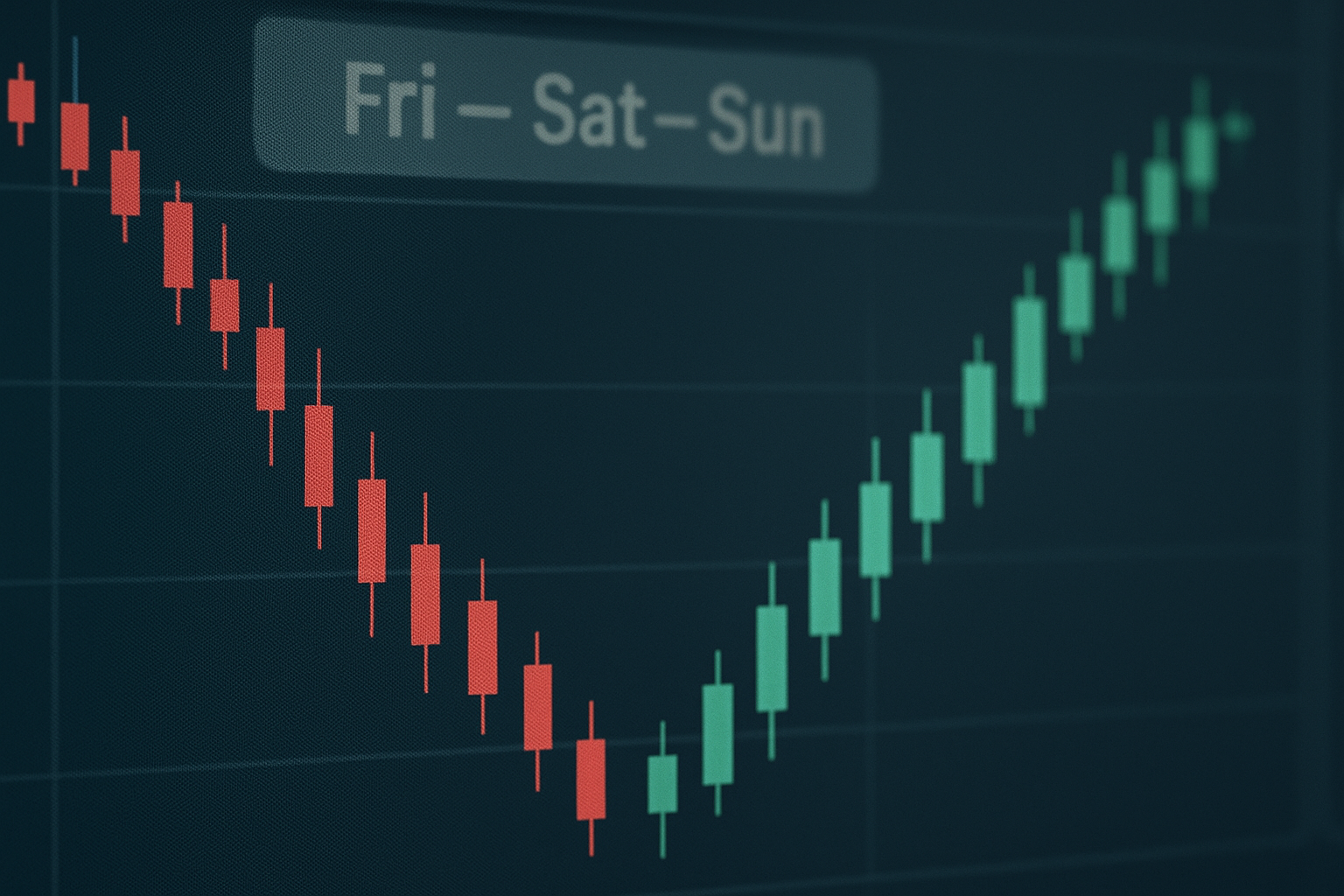The relationship between markets and policy statements has always been a rocky one. But this weekend? It's been more like a full-blown rollercoaster without the safety harness.
Friday's after-hours trading turned into a bloodbath after tensions with China escalated, sending traders scrambling to adjust positions during what should have been their weekend downtime. Then came the whiplash—Trump's sudden reassurance that things with China "will all be fine" sent futures bouncing back faster than a politician changing positions during debate prep.
I've covered market volatility for years, and there's something almost artistic about this particular reversal. It wasn't just quick—it was choreographed in a way that makes you wonder what we're actually measuring here. Economic fundamentals? Or our collective national mood disorder?
The timing raises eyebrows, doesn't it? Drop market-moving news after hours on Friday when liquidity is thin as water, let it simmer over a weekend, then calm things down right before Monday trading. Perfect storm—or perfect plan?
The Weekend Whipsaw Effect
"This is classic volatility exploitation," a hedge fund manager told me over the weekend, requesting anonymity because he wasn't authorized to question the invisible hand. "Friday night bombs, Sunday night balms. Rinse and repeat."
He's not wrong. I've watched this pattern develop across multiple administrations—what you might call an "Administration Pivot Model." It follows four predictable steps:
- Make markets tank with a dramatic statement
- Watch the pain spread
- Issue calming reassurances once the damage is visible
- Act bewildered that everyone got so worked up
Look, I'm not suggesting anything nefarious here. But the trading opportunities created by these violent swings do tend to benefit those with faster information and better connections. Funny how that works.
Information Asymmetry Theater
The financial media's reaction has been almost as entertaining as the market moves themselves. By Friday evening, we were heading for economic Armageddon. Come Monday morning, we'll see thoughtful analyses explaining why this rapid recovery makes perfect sense.
Markets always have reasons for what they do—even if those reasons have the lifespan of a mayfly in a hurricane.
What's particularly fascinating (and I've seen this countless times in my reporting career) is how these dramatic reversals highlight the gap between different types of market participants. There are those who get caught with their pants down during these swings, and those who... well, somehow seem to navigate them just fine.
Is it skill? Luck? Or something else entirely?
The Insider's Game
One veteran trader I spoke with Sunday afternoon (as futures were recovering) put it bluntly: "The old saying used to be 'buy the rumor, sell the news.' Now it's 'buy before the weekend walk-back.'"
This particular episode with China tensions serves as a textbook reminder of market reality in 2023. Volatility isn't just a risk factor—it's an opportunity generator for some and a wealth destroyer for others.
And the advantage tilts heavily toward those who can anticipate not just economic trends, but the timing and direction of official statements that might temporarily overshadow everything else.
Having covered markets through several administrations, I've noticed the gap between sophisticated institutional players and regular investors widening. The ability to process and trade on information advantages has accelerated with technology—even as the regulatory framework struggles to keep pace.
Remember when insider trading required actual human interaction? Now algorithms can execute thousands of trades before a human trader has even finished reading the alert on their phone.
The Bottom Line
As traders position themselves for Monday based on the latest reassurances, I'm reminded of something a veteran floor trader told me years ago: "The most valuable skill isn't predicting economies—it's predicting when and how the people in charge will decide to talk about economies."
In this game of markets, sometimes the cards you're holding matter less than knowing when someone might suddenly change the rules—or at least the perception of them.
And that, unfortunately, isn't something they teach in business school.
